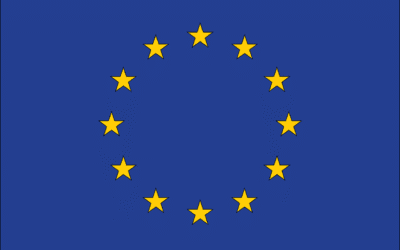Who could abridge a right so obvious, violate a relationship so sacred, as to separate a boy from his father?
Fidel Castro, for one. In the early 1960’s, Castro shut down Catholic schools and shipped children to the Soviet Union for “education” on collective farms. Rather than submit, Cuban parents smuggled 14,000 children, unaccompanied, to the United States.
Today the Catholic schools remain shut; most older children must attend boarding schools where half their time is spent on farm labor.
As recently as 1997, Cuban state security officers threatened human rights activists with the loss of their children for not raising them “within the revolution.”
And Castro notoriously blocks families from reuniting with exiles. Suppose Juan Miguel González had fled to Miami before Elián and his mother–and that Elián had drifted back to Cuba. Can anyone doubt Castro would keep the boy?
“[Elián] is a possession of the Cuban government,” according to Cuba’s unofficial Washington embassy. “No other entity can remove this.”
In Cuba, where Juan Miguel González wishes to raise Elián, he has no right to his child. The state has taken it from him.
America, by contrast, respects individual rights. So why question Juan Miguel González’ wish to take his son to Cuba?
The rights of parents are not unlimited; they yield before the rights of the child. Parents may not abuse their children, no matter what they think. They may not withhold life-saving blood transfusions, regardless of religious conviction. Nor may they consign their children to slavery.
The notion that Elián’s father has a right to take him back to Cuba is as incoherent as the idea that convicts have the right for their children to join them in prison, or that the escaped children of slaves should have been returned. It is the “right” to make his son surrender his liberty for the rest of his life.
Janet Reno argues that in law, a child belongs with his sole surviving parent. This is egregious context-dropping: it assumes the child is not being bound into slavery. Nor is the issue one of judging Juan Miguel González’ political beliefs. His beliefs are irrelevant; what matters are the objective conditions into which he puts the child.
What are those conditions?
Referring to life in Cuba as slavery is no rhetorical exaggeration; it is the literal truth.
In Cuba, the state alone controls your education. Contrary influences are illegal. Your eligibility for higher education–and the fields of study you may pursue–depends on your “revolutionary attitude” and participation in Communist youth groups. After university studies, you must work for years in a job designated by the state.
The state is virtually the sole legal employer and sets your salary; you have no alternative. Absenteeism is illegal. You might earn as much selling flowers in two days as you normally do monthly–but that’s illegal too. Selling beef on the black market can get you 30 years in jail.
People talk about nothing but what they are going to eat next: the state rations food and necessities. Nine eggs and some rice and beans are supposed to last you a month. Toilet paper is unheard of.
If the equipment at your medical clinic is not working (a common occurrence) you are not permitted to visit a clinic with a working machine; you must wait. Finding medicine and medical supplies is virtually impossible.
Because nobody can survive on the government ration, and production for one’s own profit is illegal, everyone steals. Robberies have skyrocketed. Factories lie to the government about their output, selling half on the black market and dividing the take among workers.
Nowadays religious services may be held, but only in existing churches under government surveillance. Uncooperative clergy are expelled. Building new churches is prohibited, and holding services anywhere else is an illegal assembly.
Your mail is read and phone calls monitored. Neighborhood committees police your state of mind and organize mandatory activities to make sure you are an enthusiastic supporter of the revolution. Many Cubans even fear being overheard speaking Castro’s name; instead, they stroke their chins.
What can get you branded as “dangerous”? In 1997 Dr. Dessy Mendoza got 8 years in jail for trying to alert Cubans, through the international media, to an outbreak of dengue fever. Last year, police stopped an environmental protest by arresting its leaders.
There is even a Cuban law to prevent criminality before it occurs: no illegal act is required for you to be jailed. On the other hand, if you are a victim of domestic violence, don’t expect the police to intervene.
If you get fed up and start handing out “Down With Castro” leaflets you can get 20 years in prison, under nightmarish conditions–a term that can be lengthened at the discretion of a “reeducation officer.” Collective punishments are imposed: a spouse may lose a job–the sole legal means of support; a child may lose a chance at higher education.
If you flee by boat and are not caught, you face a one in three chance of perishing–even if Castro does not send helicopters to drop sandbags on your raft or boats to ram it.
In Cuba, ordinary human beings must lie, steal and break the law in order to survive. They live in fear of each other, without hope. It is a system in which human beings have no right to exist: “[It] is like a novel by Kafka illustrated by Salvador Dali,” a former Cuban official told Newsweek.
None of this is news. Everyone knows Cuba is a one-party dictatorship that imprisons and executes people for “political” crimes. Everyone knows Cuba has no freedom of speech, assembly or religion, that private ownership is forbidden, that emigration is restricted. In such a society there is no rule of law; in every aspect of life, the individual is at the mercy of the arbitrary, changing whims of state officials.
True, people still smile in Cuba, and dance, and play baseball. But this makes Cuba “complex” only to those who refuse to conceptualize, to identify essentials and look past the range of the moment. If Southern slaves sometimes laughed, is slavery therefore tolerable? The “Castro-hasn’t-shot-anyone-this-week” mentality evades the fact that nothing essential has changed: Castro’s regime remains fully committed, in theory and practice, to the repudiation of individual rights.
It is just as illegitimate to be moved by the immediately evident anger of Elián’s father while ignoring everything else. Those who refuse to judge political systems, taking no stand between freedom and totalitarianism, are truly the ones who care nothing about the boy.
In Cuba, how will Elián handle his “reeducation”? How will he tell others about America? What of future school assignments to describe his victimization in Miami? What if one day Elián falls ill and fails to appear for a government-orchestrated “spontaneous demonstration”? What if an acquaintance confides plans to flee to America–is it real, or a ploy to test his loyalty? What will Elián do when his neighborhood committee requires him to participate in an “act of repudiation” against friends, shouting obscenities and trashing their house–will he refuse, and risk government reprisals?
Elián González has a right not to live under such conditions. His father has no right to consign him to slavery. Parental rights end where totalitarianism begins.
From the beginning, American policy should have been: “Juan Miguel González is free to come seek his child and go to whatever free country he chooses. But we will not cooperate with sending Elián back to Cuba.”
For Janet Reno to wrap herself in the rule of law while contradicting its foundation is hypocrisy. For the American government to hand a child over to a Communist dictatorship is a disgrace. Today, the true Americans are the Cuban exiles in Miami and their allies.









